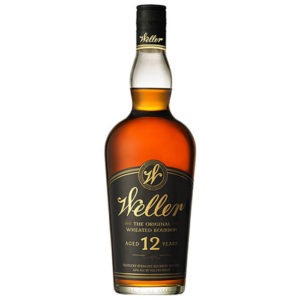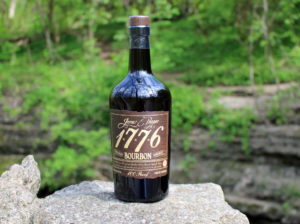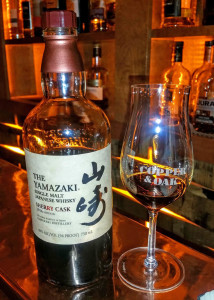By Richard Thomas
Today the U.S. Senate is scheduled to hold hearings on tariffs several American trading partners have placed on American goods in retaliation for President Trump’s own steel tariffs, and one of those goods is American Whiskey (often simplified to just “bourbon” in the news, although the tariffs include Tennessee Whiskey, rye and others). Mexico has already enacted a 25% tariff on American whiskey imports, and Turkey, China, Canada and the European Union are poised to slap on tariffs ranging from 10 to 40%.
Whiskey is a big and booming industry, but in only one state in the Union is it a critical, leading industry: Kentucky. Here in the Commonwealth, bourbon is an $8.5 billion money-maker that employees 17,500 workers, and many of those workers have well-paid, unionized jobs. The bourbon boom has resulted in hundreds of millions of dollars being invested directly in expanded and new distilleries, bottling plants, warehouses, to say nothing of the knock-on effect in supporting services (such as trucking, to name just one), tourism and infrastructure.
Keeping that in mind, targeting bourbon for retaliatory tariffs is clearly meant as a kick in the hindquarters to Senate Majority Leader Mitch McConnell. The leading Senate Republican is on record as opposing the Trump Administration’s steel tariffs, but has yet to actually do anything about them. Bourbon is the only industry available of any size and significance that can be targeted and will put the pain mostly into McConnell’s backyard.
Most in the bourbon industry agree that kick will be a painful one. The U.S. exported $667 million in whiskey to the European Union alone last year. The Chinese are not a major bourbon market yet (with a mere $9 million in imports), but everyone expects them to become one, and being cut out of it will allow other spirits industries (Scotch Whisky and Irish Whiskey in particular) to gain market share at American expense.
Even though the clear majority of American Whiskey is consumed domestically, exports are a substantial and growing part of the industry’s big picture. The big distillers have resorted to stockpiling whiskey in European warehouses ahead of the tariff as a short term solution, just one indication of how seriously they take the threat to their business. Although exports to the EU account for about 8% of overall bourbon sales, ask any company how they would feel about losing several percentage points of their sales value and you’ll get howling as a response. In business schools across America, 8% is taught as the standard figure for a good return on investment.
Many small and mid-sized companies will feel the pinch too. In a recent article in the Lexington Herald Leader, Amir Peay, owner of James E. Pepper Whiskey, detailed how European sales are a key element of his existing business, accounting for 10% of his sales. Expanding on that in the wake of opening his new distillery in Lexington is an important element of his 2018 sales plan. Now it’s all in jeopardy.
Some pundits, notably Chuck Cowdery, have discounted the impact of the tariffs, but they are wrong to do so. Saying bourbon drinkers abroad will continue to drink bourbon regardless of what it costs is both ignoring recent experience at home and reveals a profound misunderstanding of who those foreign drinkers, in particular European drinkers, are.
Only a few years ago, Japanese whisky-makers Suntory and Nikka responded to its shortfall of aged whisky by raising prices for its entire line by 20-25% or abandoning age statements altogether. The fact is that if you wanted Japanese Whisky, you had no choice but to buy what was on offer, whatever the price. It’s also true the higher prices, scarcity and changed product lines prompted many to buy Australian and Scotch whiskies instead.
I lived in Europe for eight years, doing what many drinks writers do: talking to enthusiasts and barkeepers about their drinks. My experience is that most European bourbon drinkers were really world whisky drinkers: as Europeans they were mainly into Scotch, but embraced American Whiskey as part of an interest in whiskeys from around the globe. That is not to say there aren’t folks in Europe who drink bourbon and only bourbon (mostly American expats in my experience), but not many fit that description. To say whisk(e)y drinkers will pay an extra 10 or 20 euros a bottle for bourbon because they won’t “drink Spanish brandy because it’s cheaper than bourbon if [they] don’t like Spanish brandy” is unsound, because it’s not Spanish brandy they’ll turn to; in place of bourbon, they will buy another bottle Scotch or Swedish or Irish whisky.
The tariffs will bite the American Whiskey industry, and no one should doubt that, because that is their express purpose. I think the trade and political experts in Brussels and Beijing know their business better than most bloggers; if they think cutting into the profits of the Kentucky majors will put the squeeze on Mitch McConnell, they are probably right.
How much that matters to him vis-a-vis other concerns is another story. Knowing Kentucky as only a native can, a trade war could obliterate the bourbon industry before 2020, McConnell could take 100% of the blame, and he would still win reelection. Many Kentucky Republicans don’t like him and have never liked him, but they keep voting for him anyway.
Ever since trade war talk first started brewing, some American bourbon enthusiasts have dreamed that it will bring precious bottles of hard or impossible to obtain whiskeys home. They can keep dreaming. Even if those bottles come home, it will do next to nothing to slake the thirst for them.
Here is a hypothetical scenario: 10% of Super Luscious Bourbon is exported to Europe every year (and that is actually a pretty big export figure for a limited edition bourbon). With a huge tariff slapped on it, nobody wants it over there anymore, so they stop shipping it abroad and sell it all at home. Yet the total production run of Super Lucious Bourbon is just 7,000 bottles per year and 700,000 bourbon enthusiasts are lusting for it. Having an extra 700 bottles each year scarcely helps. It won’t bring back the days when you could put your name on a waiting list and expect to get a bottle every other year at regular retail prices. Those conditions might come back in 50 years or so, but not any time soon.
Most bourbon consumption is domestic, so in the overall scheme of things even a hard crash in exports is unlikely to change much in terms of supply and demand for bourbon drinkers in America in the short and middle term future. What it would do is guarantee the end of the business side of the Bourbon Boom by slashing into profit margins. Almost all of that new construction at distillers big and small is financed by loans, and paying back those loans easily is based on the arrows on those sales charts continuing to go up. A trade war will cause expansion among the big distillers to grind to a halt and drag some of the craft and mid-sized distillers under. One needs only look at how some parts of the Scotch industry responded to a temporary stoppage of exports to China a few years back to see that. That suggests the supply situation for American bourbon drinkers would actually get worse in the middle term during a trade war, not better.
 The Whiskey Reviewer A World of Whiskey, Poured Every Weekday
The Whiskey Reviewer A World of Whiskey, Poured Every Weekday




All of the blindly following Trump supporters are going to have a wake up call when they get their tax bill next year, and their reduction in paycheck, or notice of layoff. Hey wait a minute, that may cause another domestic boom in depressed bourbon drinkers! It all evens out, haha!
Amir Peay is an idiot and fully deserves losing his company for his blind support for Trump. Elsewhere on the net if one reads of his diatribe regarding the EU’s retaliatory tariffs, his stolid refusal to criticize the President, merely blaming ‘both sides’ is incomprehensible.
No. Trump started this unnecessary war and am glad that morons like Peay are getting it in the neck. Fully deserved. Just shows what sort of educated person he is despite a BA from Southern California.
Happily go down in the Trump Titanic fool. Well done.
Actually, I apologize mentioning politics on this site. Please forgive my previous comment. I’ll try and stay on the topic of Whiskey from here on in.
But seriously, Uncle Sam shouldn’t mess with our distillers. Nuff said. Cheers.
Politics ultimately intersects with everything. It’s like an editorial I recently read from Outside magazine: if they don’t delve into the politics governing protecting the public lands and waterways where most outdoor sports take place, they aren’t doing their job.